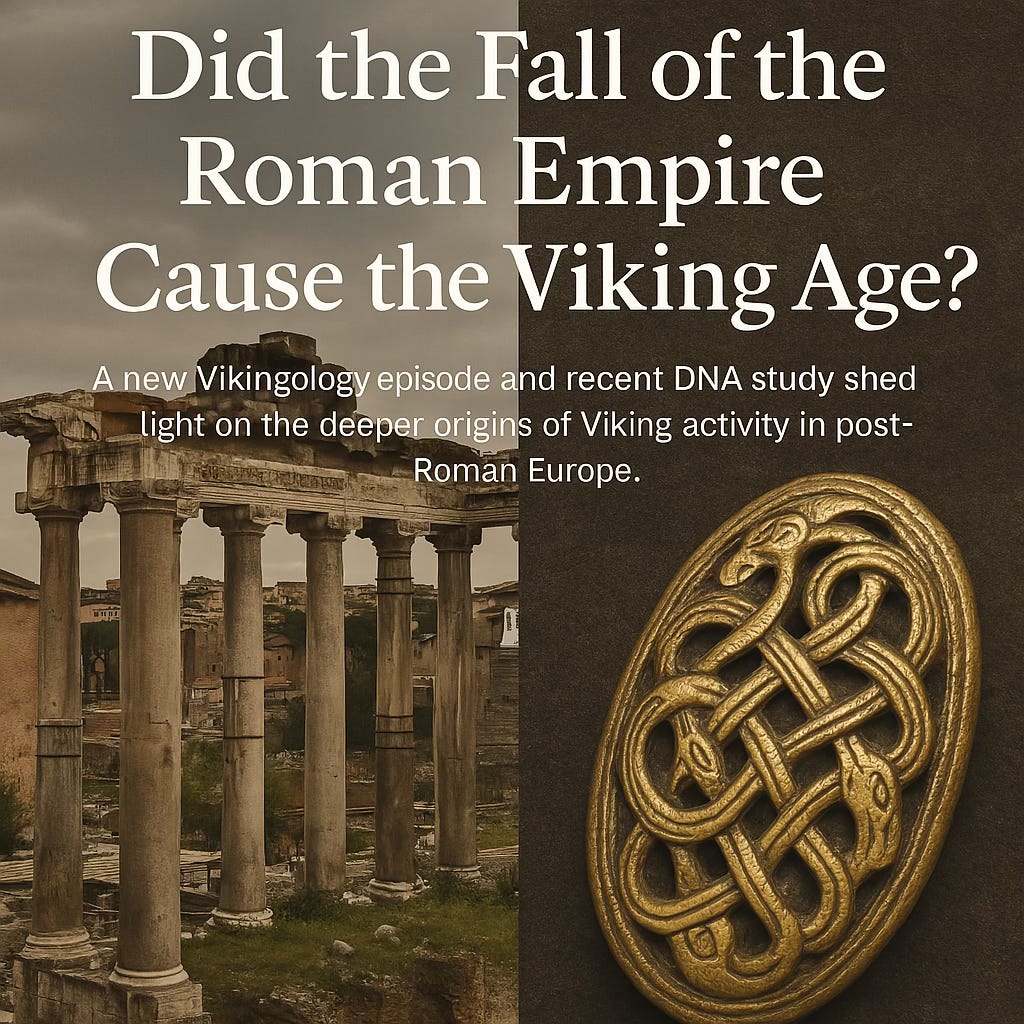Did the Fall of the Roman Empire Cause the Viking Age?
Revisiting the timeline of Viking history through genetics, archaeology, and a forgotten migration.
For generations, the Viking Age has had a definitive start date: 793 AD, the year of the infamous raid on the monastery at Lindisfarne. But what if that moment was merely a symptom of a much deeper, longer historical process? In a recent episode of Vikingology, I sat down with Alex Harvey to explore a growing body of academic discourse that pushes the origins of Viking activity much farther back—potentially to the waning days of the Western Roman Empire.
In that conversation, we explored the idea that the social, economic, and environmental shifts at the end of the Roman period may have laid the groundwork for what would eventually be recognized as the Viking phenomenon. This includes the emergence of trade networks in the North Sea, the fragmentation of power structures across Europe, and long-term cultural exchanges between Scandinavia and the British Isles well before the first recorded raid.
This year, a newly published study in Nature added a fascinating layer to that theory. The research analyzed more than 1,500 ancient genomes and found that individuals with clear Scandinavian ancestry were present in Britain as early as the Roman era. This challenges the long-held assumption that Scandinavian migrations into Britain only began with Viking raids, suggesting an earlier, more gradual movement of peoples.
📄 Read the full study: Nature – Population genomics of post-Roman Britain
Of course, genetics alone can't tell us what those early Scandinavians were doing in Britain—whether they were traders, settlers, mercenaries, or something else entirely. However, their presence provides at least one indication that the Viking Age may have roots farther back than the 8th century. It lends weight to the argument that Scandinavian mobility and influence were part of a broader continuum rather than an explosion of violence and seafaring prowess.
This fits into a more longue-durée shift in how historians and archaeologists are beginning to view the early medieval period: not as a series of disconnected episodes but as overlapping waves of cultural and population change. The idea that there were “forgotten Vikings”—pre-793 Scandinavians shaping the cultural landscape of Britain—is gaining traction, and with it, a need to rethink the story we've long told about how the Viking Age began.
History is, as ever, messier than the textbooks suggest. But that makes it worth revisiting—especially when new science and old stories combine to reveal a bigger, more complex picture of the past.



